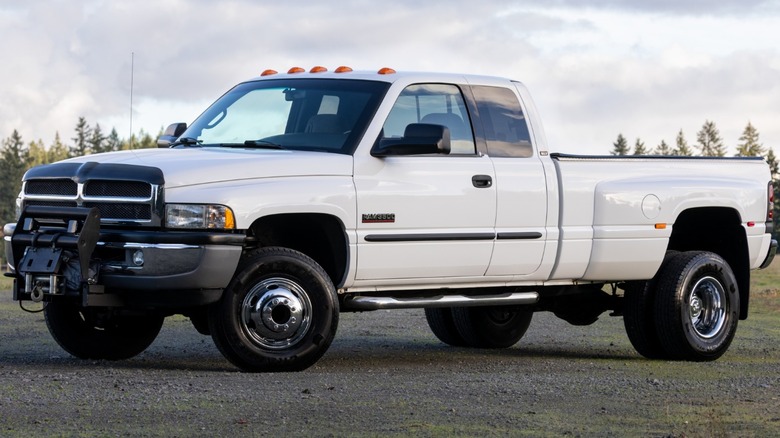Anyone who’s spent time around trucks knows there’s just something different about a diesel when it’s pulling a heavy load. Factory standard, supercharged, or even not-so-legally modified (aka deleted), diesel trucks can get it done. A diesel engine doesn’t strain, it doesn’t scream, and it doesn’t need to rev high. Whether it’s hauling equipment, towing a big camper, or dragging 14,000 pounds up a mountain pass, diesel trucks have a way of making hard work look almost easy. You’ll see it everywhere heavy lifting happens: on job sites, highways, farms, ranches, and oil fields — the kinds of places where trucks don’t just show up, they put in work.
That’s not to say gas trucks don’t have their place. For weekend boat towing or hauling lighter loads, gas engines do just fine. They’re usually several thousand dollars cheaper to buy, can be easier to maintain, and are arguably better for the environment. But despite increased regulatory measures by the Environmental Protection Agency, heavy-duty diesel trucks continue to outsell the gas versions. It’s almost like people know that when the trailer gets longer and the payload heavier, diesel is nearly always the smarter choice. Here are a few key reasons why diesel is the better choice for towing and hauling.
Why diesel does it better
Diesel trucks are purpose-built for towing and hauling, and the advantage starts with torque. Diesel engines deliver massive low-end torque, often exceeding 900 pound-feet in full-size one-ton pickups. That torque comes on early and strong, giving diesel trucks the muscle to move heavy loads with less effort and smoother throttle response. Diesel engines also hold their efficiency under load, thanks in part to the higher energy density of diesel fuel. In real-world towing tests, diesel pickups consistently achieve about 20% better fuel economy than their gas counterparts, which adds up quickly over long hauls.
Fewer fuel stops, lower operating costs, and longer range are major advantages on long hauls, especially when towing. But just as important is how well the engine holds up under constant load. Diesel engines are built with heavy-duty components designed to handle extreme compression and the stress of continuous hard use. That rugged construction pays off in long-term reliability. Many diesel engines are capable of lasting 500,000 to 800,000 miles, especially when you follow smart diesel maintenance guidelines. For trucks that spend their lives towing across long distances, that kind of durability is essential.
Diesel trucks offer a clear advantage in torque, fuel efficiency, and long-term durability. They’re built to handle heavy loads day in and day out without breaking a sweat or driving up operating costs. For drivers who count on their trucks to perform under pressure, diesel is the right tool for the job.



